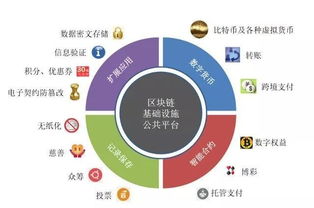Blockchain technology has been a hot topic in recent years, revolutionizing industries across the globe. Let's take a closer look at the key aspects of blockchain technology and its implications for the future.
What is Blockchain Technology?
Blockchain is a decentralized, distributed ledger technology that enables secure, transparent, and tamperproof recordkeeping. In simple terms, it is a chain of blocks, where each block contains a list of transactions. These blocks are linked together in a chronological and secure manner, forming a chain.
Key Features of Blockchain Technology:
Applications of Blockchain Technology:

Blockchain technology has a wide range of applications across various industries:
- Finance: Blockchain is most commonly associated with cryptocurrencies like Bitcoin. It enables secure and efficient peertopeer transactions without the need for intermediaries.
- Supply Chain Management: Blockchain can enhance transparency and traceability in supply chains by recording every transaction from the source to the enduser.
- Healthcare: Blockchain can improve the security and interoperability of health records, ensuring patient data is accurate and accessible when needed.
- Real Estate: Blockchain can streamline property transactions by reducing paperwork and facilitating faster, transparent transactions.
- Voting Systems: Blockchain technology can be used to create secure and tamperproof voting systems, ensuring the integrity of the electoral process.
Challenges and Considerations:
While blockchain technology offers numerous benefits, there are some challenges and considerations to keep in mind:
- Scalability: As the number of transactions on a blockchain network grows, scalability becomes a critical issue that needs to be addressed to ensure efficient operations.
- Regulatory Concerns: The regulatory environment surrounding blockchain technology is still evolving, presenting challenges for widespread adoption in certain industries.
- Energy Consumption: The energyintensive process of blockchain mining has raised concerns about its environmental impact, prompting the development of more sustainable solutions.
- Privacy and Security: While blockchain provides enhanced security features, issues related to data privacy and security remain a focus for organizations implementing blockchain solutions.
Conclusion:
Blockchain technology has the potential to transform industries by making processes more efficient, secure, and transparent. By understanding its key features, applications, challenges, and considerations, businesses can harness the power of blockchain to drive innovation and create new opportunities in the digital landscape.







